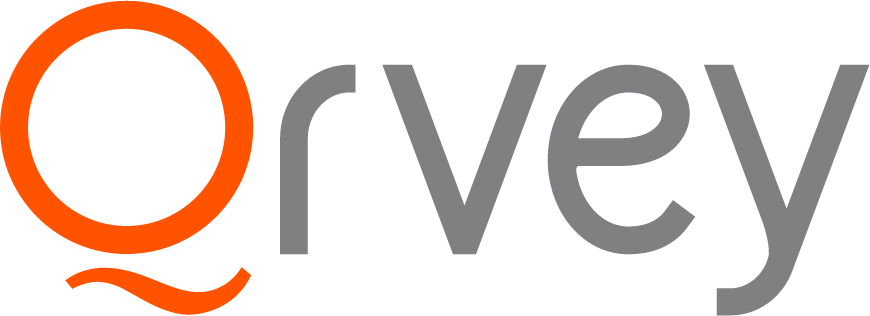What to Expect:
The benefits of data analytics in healthcare are numerous and impactful. Data analytics is the process of analyzing data in various forms to improve patient outcomes, health research, and operational efficiency. By using data analytics, healthcare providers can gain valuable insights, make evidence-based decisions, and provide personalized care.
In this blog post, we will explore the top seven benefits of data analytics in healthcare and how they can transform the healthcare industry.
1. Enhanced Patient Care
One of the main benefits of healthcare analytics is that it enables healthcare professionals to enhance patient care. By using data analytics, doctors can access and analyze patient data, such as medical history, test results, and vital signs, to find patterns, predict health risks, and create treatment plans.
Data analytics can also help doctors provide personalized and proactive care to their patients. For example, data analytics can help doctors monitor chronic conditions, such as diabetes or heart disease, and provide timely interventions, such as medication adjustments or lifestyle recommendations. Data analytics can also help doctors identify patients who are at risk of developing certain diseases, such as cancer or Alzheimer’s, and provide preventive measures, such as screening tests or lifestyle changes.
By using data analytics, doctors can improve the quality and effectiveness of patient care, and increase patient satisfaction and loyalty.
2. Improved Operational Efficiency
Another benefit of data analytics in healthcare is that it can help healthcare organizations improve their operational efficiency. By using data analytics, healthcare organizations can streamline their processes and optimize their resource allocation. For example, data analytics can help hospitals enhance efficiency and reduce costs by analyzing data on patient flow, staff productivity, and equipment usage. This analysis can help hospitals identify and address any issues that may affect their performance, such as bottlenecks, delays, or waste.
Data analytics can also help healthcare organizations improve their service delivery and customer experience. For example, data analytics can help hospitals reduce waiting times, improve patient satisfaction, and increase patient retention. Data analytics can also help hospitals improve their communication and collaboration with other healthcare providers, such as clinics, pharmacies, or laboratories.
By using data analytics, healthcare organizations can improve their operations and achieve their goals more effectively and efficiently.

3. Early Disease Detection and Prevention
A third benefit of data analytics in healthcare is that it can help healthcare professionals detect and prevent diseases early. By using data analytics, doctors can study patient information, such as FHIR data, to find signs of problems early and take action to prevent them. FHIR data is a standard for exchanging healthcare information electronically, which allows doctors to access and share patient data across different systems and platforms.
Data analytics can help doctors detect and prevent diseases in various ways. For example, data analytics can help doctors diagnose diseases more accurately and quickly, by using algorithms and machine learning to analyze symptoms, test results, and medical images. Data analytics can also help doctors prevent diseases by using predictive analytics to forecast outbreaks, identify high-risk populations, and create preventive strategies.
By using FHIR healthcare analytics, doctors can significantly improve patient outcomes and reduce healthcare costs, by detecting and preventing diseases early.
4. Evidence-Based Decision Making
Data analytics can also help healthcare professionals make evidence-based decisions. By using data analytics, researchers and policymakers can analyze vast amounts of clinical data, such as clinical trials, case studies, and surveys, to identify trends, evaluate treatment effectiveness, and develop guidelines for best practices.
Data analytics can help healthcare professionals make evidence-based decisions in various ways. For example, data analytics can help researchers discover new drugs, therapies, or devices, by using data mining and natural language processing to find patterns, correlations, and insights from existing data. Data analytics can also help policymakers create policies, regulations, and standards, by using data visualization and reporting to present data in a clear and understandable way.
By using data analytics, healthcare professionals can ensure that their decisions are based on solid evidence, resulting in improved patient outcomes and quality of care.
5. Fraud Detection and Prevention
Data analytics can also help healthcare organizations combat fraud and abuse. By using data analytics, healthcare organizations can analyze claims data and patterns, to identify suspicious activities, such as billing irregularities, duplicate claims, or false diagnoses. This approach can save money for healthcare organizations and protect patients from unnecessary procedures or treatments.
Data analytics can help healthcare organizations detect and prevent fraud in various ways. For example, data analytics can help healthcare organizations verify the identity and eligibility of patients, by using biometric data, such as fingerprints, facial recognition, or voice recognition. Data analytics can also help healthcare organizations monitor and audit their transactions, by using anomaly detection, pattern recognition, or rule-based systems.
By using data analytics, healthcare organizations can reduce the risk of fraud and abuse, and ensure the integrity and security of their data.
6. Predictive Analytics
Data analytics can also enable healthcare providers to predict patient outcomes and anticipate healthcare needs. By using data analytics, doctors can study past information, such as medical records, prescriptions, or lifestyle data, to find patients at high risk who may need extra care or check-ups. This proactive approach can allow for timely interventions, reducing hospital readmissions and improving patient satisfaction.
Data analytics can also help healthcare providers anticipate healthcare needs in various ways. For example, data analytics can help healthcare providers forecast demand and supply, by using time series analysis, trend analysis, or scenario analysis. Data analytics can also help healthcare providers plan and optimize their resources, by using optimization models, simulation models, or decision support systems.
By adopting healthcare SaaS powered by data analytics, healthcare providers can improve their planning, streamline decision-making, and deliver better care to patients.
7. Population Health Management
Data analytics can also play a vital role in population health management. Population health management is the process of improving the health outcomes of a group of individuals, such as a community, a region, or a country, by addressing the social, environmental, and behavioral factors that affect their health. Data analytics can help healthcare organizations use data from different sources, such as electronic health records, census data, or social media data, to understand health trends, assess population health risks, and create specific interventions.
Data analytics can help healthcare organizations manage population health in various ways. For example, data analytics can help healthcare organizations segment and target their populations, by using clustering, classification, or regression techniques. Data analytics can also help healthcare organizations measure and evaluate their interventions, by using outcome measures, performance indicators, or feedback mechanisms.
By using data analytics, healthcare organizations can improve overall community health and reduce healthcare disparities.
Data analytics is an indispensable tool in the healthcare industry, offering a wide range of benefits. Data analytics can transform healthcare by improving patient care, efficiency, disease detection, and fraud prevention, leading to better patient outcomes. By harnessing the power of data, healthcare providers can make informed decisions, provide personalized care, and create value for their customers.
If you want to enjoy the benefits of embedded analytics in healthcare, contact us today to learn more about Qrvey. Qrvey is a unique embedded analytics solution that takes a security-first approach and fits well within the healthcare industry. It is the only solution that has both embedded data visualization and a data warehouse designed for analytics deployed to your cloud environment for maximum data security.
See how Qrvey’s embedded analytics software can take your healthcare analytics applications to the next level.
Learn more about our healthcare analytics solutions or schedule a demo today.

David is the Chief Technology Officer at Qrvey, the leading provider of embedded analytics software for B2B SaaS companies. With extensive experience in software development and a passion for innovation, David plays a pivotal role in helping companies successfully transition from traditional reporting features to highly customizable analytics experiences that delight SaaS end-users.
Drawing from his deep technical expertise and industry insights, David leads Qrvey’s engineering team in developing cutting-edge analytics solutions that empower product teams to seamlessly integrate robust data visualizations and interactive dashboards into their applications. His commitment to staying ahead of the curve ensures that Qrvey’s platform continuously evolves to meet the ever-changing needs of the SaaS industry.
David shares his wealth of knowledge and best practices on topics related to embedded analytics, data visualization, and the technical considerations involved in building data-driven SaaS products.
Popular Posts
Why is Multi-Tenant Analytics So Hard?
BLOG
Creating performant, secure, and scalable multi-tenant analytics requires overcoming steep engineering challenges that stretch the limits of...
How We Define Embedded Analytics
BLOG
Embedded analytics comes in many forms, but at Qrvey we focus exclusively on embedded analytics for SaaS applications. Discover the differences here...
White Labeling Your Analytics for Success
BLOG
When using third party analytics software you want it to blend in seamlessly to your application. Learn more on how and why this is important for user experience.









